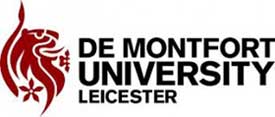About English Language Teaching MA in De Montfort University
The English Language Teaching MA programme bridges theoretical knowledge of language teaching and learning, with practical classroom experience. You will graduate with both the practical skills and advanced theoretical understanding to succeed as an English Language teacher at all levels, from primary and secondary schools to universities and English Language schools, both in the UK and overseas.
Throughout the course you will hone your theoretical and analytical abilities, examining research into language teaching and learning and its implications for educators. At the same time, you will have the opportunity to practise in the classroom and be encouraged to critically reflect upon your own technique and approach.
Our assessment methods are designed to enable you to develop a range of real-life skills, including writing lesson plans and rationales, carrying out microteaching to peers, and leading seminar discussions. You will also develop as an independent learner and acquire advanced research skills, with the chance to complete a dissertation exploring an area of personal or professional interest. Optional modules will allow you to deepen your knowledge and explore specialised areas, including psycholinguistics, assessment and syllabus and curriculum design.
Key features
- Boost your employability by gaining a theoretical awareness of issues and trends in English Language teaching, combined with the skills to teach English Language at the highest level.
- Our teaching team has a wide range of experience teaching in both the UK and abroad, as well as research expertise, ensuring that current trends inform the curriculum.
- Our graduates go on to successful careers as tutors, heads of study and university lecturers, both in the UK and overseas.
- Opportunities to gain practical skills include classroom observation, teaching asylum seekers and teaching abroad, with recent visits to Thailand and India.
- Join a community that fosters independent learners and encourages ongoing self-improvement through critical reflection on personal teaching practice. Students who demonstrate a high degree of teaching competence have the opportunity to be employed by the Centre for English Language Learning at DMU.
Scholarships:
At DMU, we are committed to helping our graduates enhance their careers and personal development through further study.
Vice-Chancellor’s 2020 Scholarship
Up to 50 per cent of tuition fees offered to Home/EU DMU alumni for students who wish to continue their studies at DMU by enrolling on a Postgraduate taught course. For more information visit our Vice-Chancellor’s 2020 Scholarship page.
Vice-Chancellor's Sports Scholarship
Apply for the Vice-Chancellor's Sports Scholarship, worth up to £6,000.zz
Entry criteria
Typical entry requirements
You should have the equivalent or above of a 2:2 UK bachelor’s honours degree in a relevant subject such as English or Education.
We encourage and welcome applications from applicants with a wide range of backgrounds and perspectives.
International students
If English is not your first language an IELTS score of 6.5 overall with 5.5 in each band, or equivalent when you start the course is essential. English Language tuition, delivered by our British Council accredited Centre for English Language Learning, is available both before and throughout the course if you need it.
De Montfort University Highlights
| Type of Institution |
Public |
| Campus Setting |
Urban |
| Endowment |
£1.17 million |
| Number of Campuses |
4 faculties |
| Number/Percentage of International Students |
23205 |
| Total number of Professors |
3240 |
| Student Satisfaction Rate |
86% |
| Graduate Job Rate |
97.3% |
| Number of Residence Vacancy |
Around 3000 |
| International fee |
Undergraduates- £13240 (annual) Postgraduates- £15950 (annual) |
| Number of Academic Programs |
UG, PG, Part time, distance, blended |
| Mode of Program |
Full time, distance and online |
| Average Graduate Salary |
19800 pounds a year |
De Montfort University The tuition fee (In GBP) for various programs is tabulated below:De Montfort University Average Cost
| Field of Study |
Avg.Fees |
| Art, Design and Humanities: |
£13,750 |
| Business and Law |
£13,750-£14,550 |
| Media |
£13,750 - £14,250 |
| Engineering |
£14,250 |
| Computing |
£14,250 |
| Health and Life Sciences |
£13,250 - £14,250 |
| Nursing BSc |
£14,950 |
De Montfort University The Average Tuition Fees and Other Expenses
| Expenses |
Estimated cost in pounds |
| Undergraduate tuition fee |
13,250- 14950 |
| Postgraduate tuition fee |
13600-15,900 |
| On campus accommodation |
5,000-6040 |
| Average cost of living |
97-110 per week |
DMU International Scholarship up to 1500 pounds
- TEF Gold Outstanding Alumni Scholarship up to 3000 pounds
- Leicester Castle Business School Scholarships:
- Global MBA Scholarship £3,000 - £5,000
- Full Postgraduate Scholarship
- LGBTQ + Allies Scholarship-two fully funded post graduate taught scholarship packages including full fee weaver and maintenance bursary.
- Vice Chancellor's Sports Scholarship- three different scholarship packages are available with eligible students being awarded up to 6000 pounds of support.
